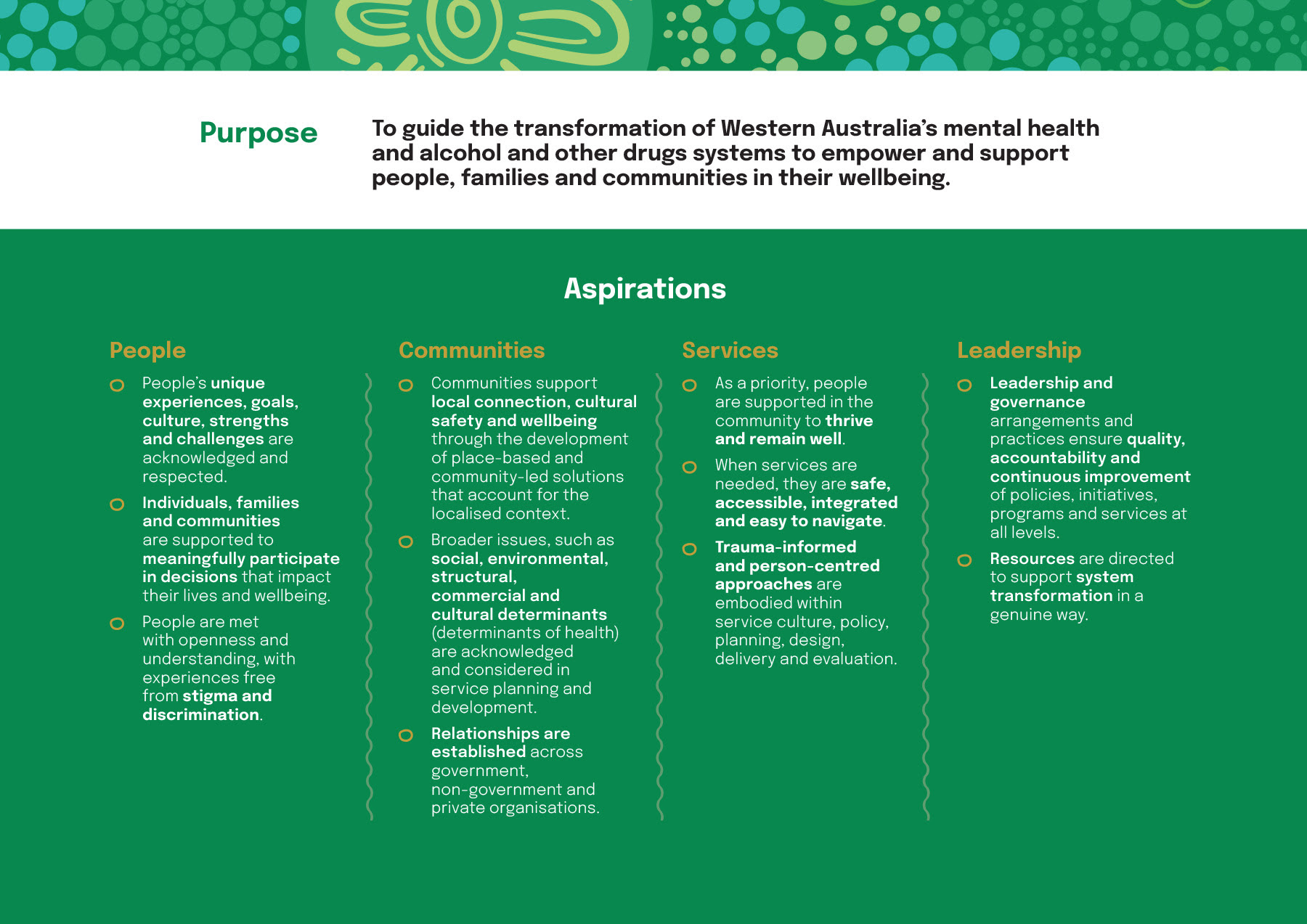Mental Health Commission
The Mental Health Commission (Commission) is leading the development of a new Western Australian Mental Health and Alcohol and Other Drugs Strategy 2026-2031 (Strategy).
About the Strategy’s proposed strategic directions
The Strategy’s proposed strategic directions are presented through five Strategic Pillars which reflect whole-of-system priorities:
- Approaches that promote wellbeing for everybody
- Supporting people in the community to achieve their own wellbeing goals
- Equitable access to services in the community
- Specialised and acute services for those who need them
- Foundations for contemporary, person-centred systems
Focus Areas for each Strategic Pillar outline the areas for specific attention over the next five years, guiding directions for what initiatives will be developed and implemented.

How were the strategic directions developed?
Guided by a Discussion Paper, state-wide consultation took place between October and December 2024.
A Consultation Summary Report has been developed to provide an overview of the themes that emerged through the statewide consultation process.
Download the consultation summary report
The proposed strategic directions were developed based on what we heard through consulting with diverse stakeholders and community members, including people with lived and living experience, their families, carers and significant others. This builds on previous work, our strong evidence base and related government priorities.
Download the proposed strategic directions
The opportunity to provide final feedback on the Strategy's proposed strategic directions closed on 26 September 2025.
Thank you to everyone who shared their insights, expertise and personal experiences to shape the new Strategy.
What other information will be included in the final Strategy?
The final Strategy will include a summary of its development, define wellbeing, outline the current state of mental health and alcohol and other drugs systems and provide an overview of the approach to implementation, evaluation and monitoring. It will also demonstrate linkages to intersecting state and national reform priorities, such as Closing the Gap.
To support the final Strategy, Annual Implementation and Monitoring plans (AIM Plans) will be developed to provide an overview of the key actions the Commission will lead or facilitate, and major actions led by partner agencies to achieve the Strategy’s Focus Areas. The first AIM Plan will be released when the Strategy is finalised.
Next Steps
Updates on the Strategy's development will be provided via the Mental Health Commission’s social media pages, and this website.
To keep updated on the progress of the Strategy, follow us on social media or subscribe to Stakeholder Connect for e-News every two months, straight to your inbox.
Page last updated26 February 2026



